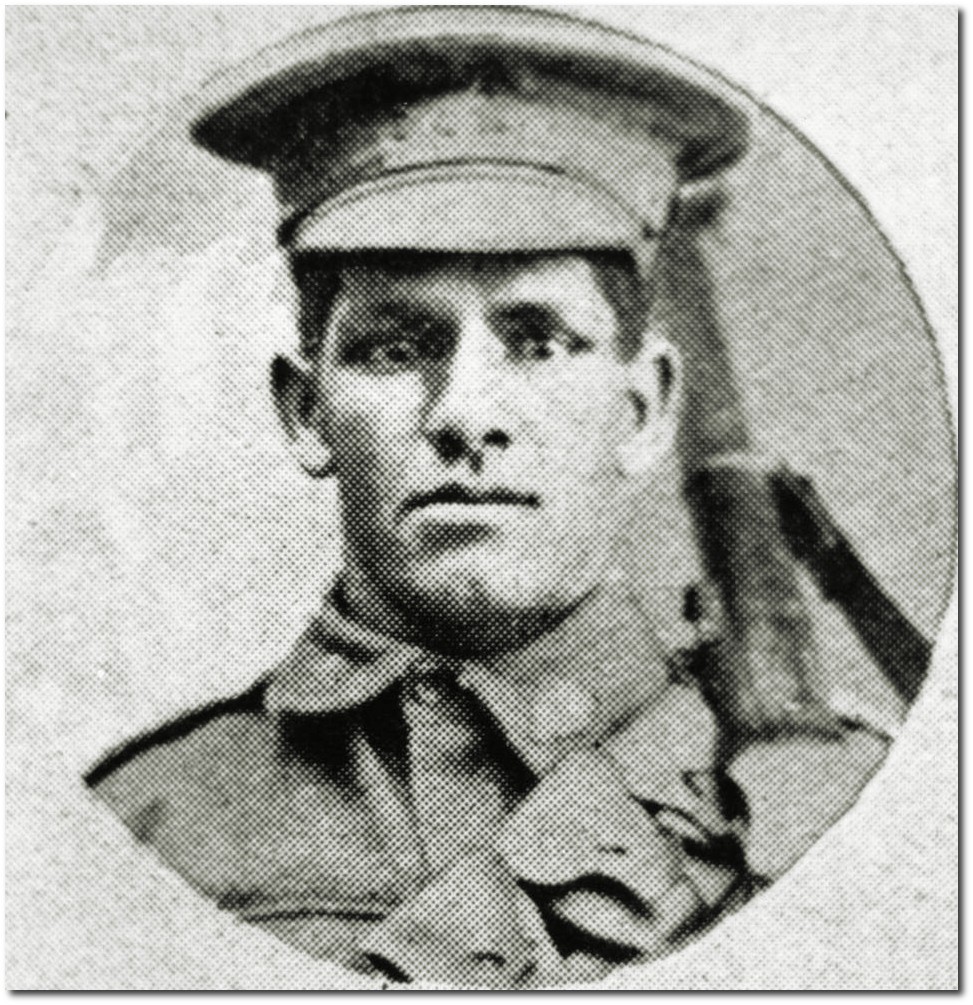
Martin Blyth (Bligh), The Queenslander Pictorial, 5 October 1918
Indigenous Australian, Martin BLYTH, Australian Army Service Corps
Martin Blyth (also known as Bligh) was born in Kilkivan, Queensland in 1893 to Jack Bligh (1870-1910) and Aggie (1875-1910). In 1913 he was granted permission by the Chief Protector of Aborigines to marry Sophie Mummin, they had daughter Vivienne in 1916, and son Keith in May 1917, sadly his son and wife both passed away in 1917.
Martin was working as a stockman in the region in 1918 when he volunteered to serve with the first AIF in August. The enlisting officer, wrote to District Headquarters on his behalf, and another Indigenous volunteer Neville Black and requested their inclusion in the services.
Apparently Blyth had volunteered earlier in the war, at Woolvi, but had been refused on the grounds of his heritage. This time Blyth was accepted and he began his training at Rifle Range camp, Enoggera; to date there is no record showing that Neville Black served, but a Neville Blackman is mentioned in an article published in The Brisbane Courier 21 August 1918, that refers to a Neville Blackman from Murgon enlisting along with Martin Blyth, but no further information can be found to date.
Once assigned to the 6th General Reinforcements, Queensland, Blyth embarked for Egypt on board the troopship 'Malta' arriving in the Port of Suez five weeks later, and just a few days after the armistice in Europe had been signed.
The reinforcements were taken into the Central Training Depot, Moascar, before being allotted to their specific units. Blyth was assigned to the Australian Army Service Corps, and mustered as a driver, he worked with the 37th & 38th Army Service Corps Companies until being returned home in September 1919.
When Martin Blyth returned to Queensland he returned to the authority of the 'Chief Protector of Aborigines'. Martin was granted permission to marry Maudie Brierty in 1926 at Barambah, but in 1930 he and fellow returned soldier Charley Alley were removed and detained on Palm Island, he passed away in 1956.
Read more:
- SERVICE RECORD: BLYTH, Martin
- Register of Marriage Applications 1908 - 1936
- TWO BANISHED FROM THE MAINLAND, The Evening News 17 May 1930, p5.
- One of the soldiers featured in SLQ’s HistoryPin Collection
- Queensland's Indigenous Servicemen [mp4]
The information in this blog post has been researched by State Library staff and volunteers, it is based on available information at this time. If you have more information that you would like to share or further research uncovers new findings, this post will be updated.
Comments
Your email address will not be published.
We welcome relevant, respectful comments.